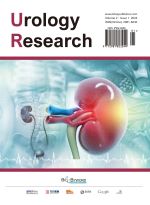Abstract
Objective: To analyze the improvement effect of compound diclofenac sodium with pethidine and scopolamine on patients’ pain in the treatment of acute renal colic. Methods: 360 patients with acute renal colic admitted from January 2022 to December 2023 were selected and divided into the control group and the observation group by double-blind method. The control group applied pethidine with scopolamine treatment and the observation group adopted the same treatment combined with compound diclofenac sodium. Comparison between the two groups was made in terms of pain improvement, the disappearance time of each symptom, as well as the treatment effect and adverse drug reactions. Results: The pain score of the observation group after treatment was lower than that of the control group, the disappearance time of each symptom was shorter than that of the control group, the total treatment effectiveness was higher than that of the control group (P < 0.05), and the difference in the incidence of adverse reactions between the two groups was not significant (P > 0.05). Conclusion: In the treatment of acute renal colic, the combined application of compound diclofenac sodium with pethidine and scopolamine can actively improve the pain symptoms and promote the disappearance of each symptom as early as possible, which is effective and has few adverse reactions.
References
Liu H, 2023, Effect of Compound Diclofenac Sodium Combined with Pethidine and Scopolamine in the Treatment of Patients with Acute Stone Renal Colic. Medical Journal of Chinese People’s Health, 35(16): 21–23.
Shen L, Li J, Shen Y, 2023, Clinical Efficacy Observation of Acupoint Injection of Compound Diclofenac Sodium Injection Combined with Auricular Pressure Bean in the Treatment of Ureteral Stone Renal Colic. Primary Medical Forum, 27(35): 126–129.
Weltings S, Buddingh KT, Van Diepen DC, et al., 2021, The BUSCOPAN Study: A Randomized-Controlled Non-Inferiority Trial of a Continuous Butylscopolamine Infusion Versus Placebo in Patients with A Renal Colic Not Responding to Oral Non-Steroidal Anti-Inflammatory Drugs. World Journal of Urology, 39(7): 2747–2752.
Ji K, Yuan C, Qi J, 2023, The Efficacy of Tonglong Dashi Dishi Fang Combined with Acupuncture on Sanyinjiao in Treating Urinary Stone Renal Colic and its Effect on Patients’ Serum Pain-Causing Substances, Urinary Calcium, and Urinary Bone Coelomocyte Protein Levels. Shaanxi Traditional Chinese Medicine, 44(9): 1241–1244.
Johnson BA, Sorokin I, Antonelli J, et al., 2022, Efficacy of Intramuscular Ketorolac for Preventing Renal Colic Post Stent Removal. Randomized Controlled Trial. The Journal of Urology, 208(3): 650–656.
Zhang J, Yu T, Liao Z, et al., 2020, A Prospective, Multicenter, Randomized Controlled Clinical Study of Physical Vibration Lithotripter in Different Positions for the Treatment of Ureteral Stone Renal Colic. Chinese Journal of Urology, 41(1): 46–50.
He X, 2020, Comparison of the Effects of Different Administration Modes of Scopolamine Butylbromide Combined with Diclofenac in the Treatment of Stone Renal Colic. China Primary Medicine, 27(11): 1286–1289.
Liu Y, Zhang H, Chen H, et al., 2022, A Study of Ureteral Wall Thickness to Predict the Likelihood of Ureteral Stone Self-Discharge After Renal Colic. Journal of Clinical Urology, 37(3): 172–174, 179.
Li F, Xu X, Zhou Z, et al., 2021, Clinical Efficacy Observation on the Treatment of Moderate-To-Severe Osteoarthritis by External Application of Traditional Chinese Medicine Combined with Compound Diclofenac Sodium. Journal of Hubei University of Traditional Chinese Medicine, 23(1): 92–94.
Luo X, Zhang Y, Yu Z, et al., 2022, Clinical Study and Analysis of the Efficacy and Safety of Resorcinol and Scopoletin in the Treatment of Renal Colic. Chinese Journal of Clinical Pharmacology, 38(8): 832–836.
